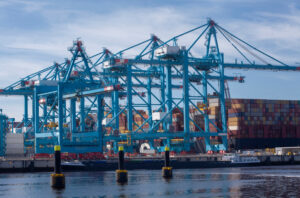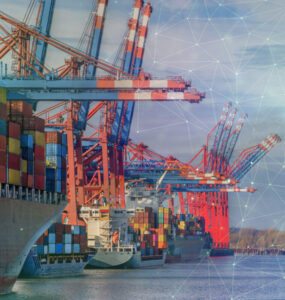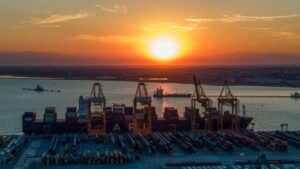Photo Credit: Pacific International Lines
Singapore’s leading container shipping line, Pacific International Lines (PIL) has announced it will work IBM to utilise blockchain technology in its supply chain.
The PIL-IBM collaboration will seek to improve the documentation process by making it more efficient and reducing the risk of fraud.
It will do this by creating an electronic bill of lading – an e-BL – that documents, such as evidence of contract of carriage, receipt of goods and title of goods, can be stored on.
The initiative is supported by the Maritime and Port Authority of Singapore and several other national institutions and corporations, including the Singapore Shipping Association, Infocomm Media Development Authority, Singapore Customs and the Bank of China (BoC).
It’s the latest in a current series of initiatives and projects currently being undertaken in the marine industry.
Find out what is behind the blockchain hype by reading a Port Technology technical paper
Speaking about the project, Lisa Teo, Executive Director of PIL, commented: “This is a big step forward for PIL. As an international shipping company, we believe we have a role to play in enhancing efficiencies within the intermodal transport logistics ecosystem.
PTI Insight: Blockchain – The Missing Links
“Working with a complex logistic network comprising ports and terminals, agencies, government entities, banks and shippers; systematic supply chain management is increasingly important to lower costs through the chain by cutting unnecessary expense, movements and handling.
“Traditionally, information flow is predominantly handled via manual processes and the supplychain is slowed down when there are many points of communication within its framework.
“The use of blockchain technology to allow for the direct exchange of documents and information via the decentralised network to boost transparency, eliminate disputes forgeries and unnecessary risks will be key for this industry to progress.”









